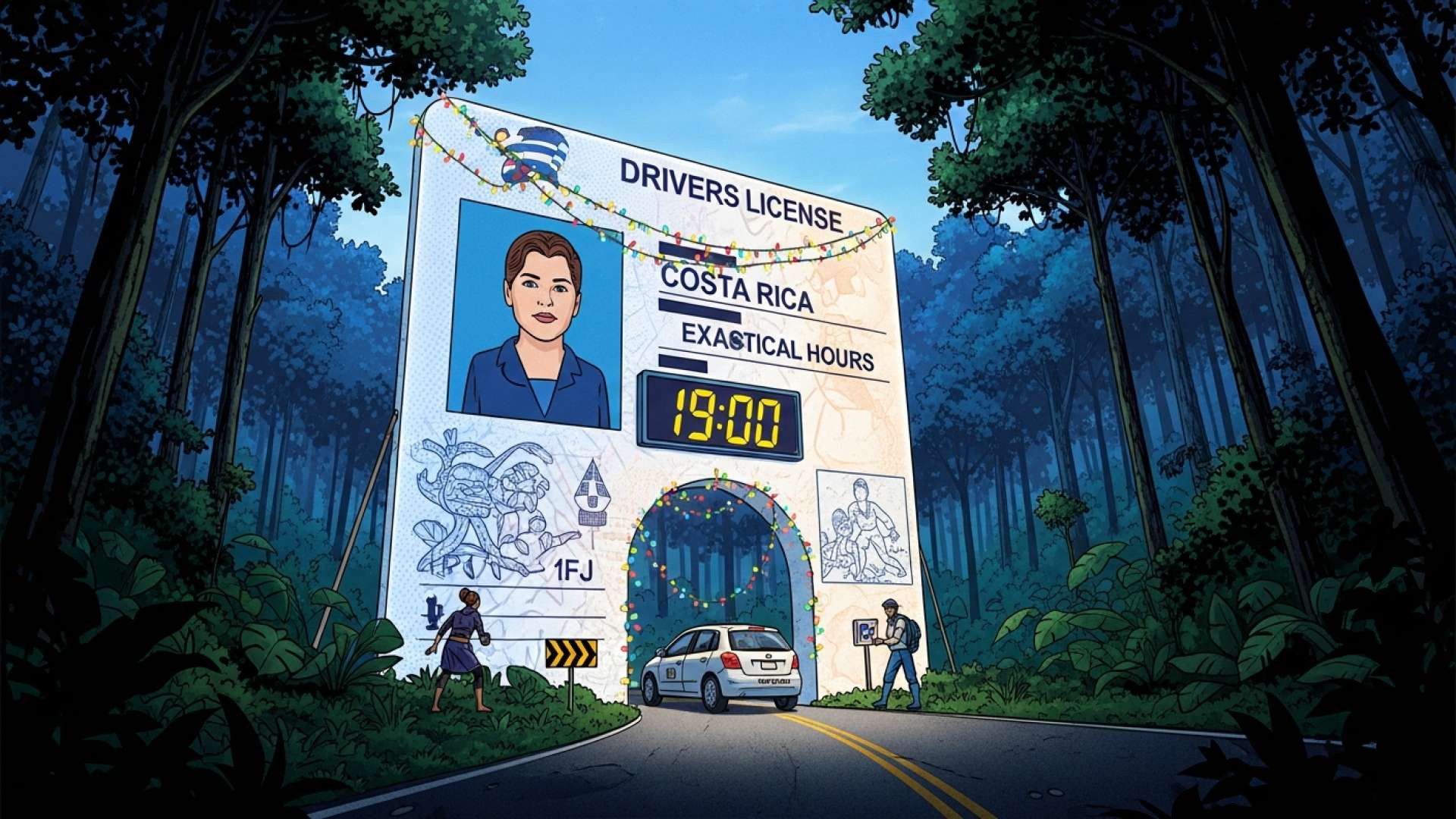San José, Costa Rica — SAN JOSÉ – In a significant move to address persistent demand and reduce wait times for aspiring drivers, Costa Rica’s General Directorate of Road Safety Education (DGEV) has announced a special extended schedule for practical driving tests throughout December. This initiative targets five of the country’s most high-traffic testing centers, providing a critical window of opportunity for thousands of applicants before the year’s end.
The temporary expansion will be implemented at the testing circuits in San José (Ciudad Vial), Liberia, Puntarenas, Guápiles, and Heredia. These locations were strategically chosen to serve major population centers and regional hubs, ensuring broad access to the additional appointment slots. The measure is seen as a direct response to the perennial backlog that frustrates many citizens seeking to obtain their driver’s licenses, a crucial document for both personal mobility and employment opportunities across the nation.
To delve into the legal framework and responsibilities surrounding the national driving test system, TicosLand.com consulted with legal expert Lic. Larry Hans Arroyo Vargas, a specialist from the renowned firm Bufete de Costa Rica, who provided his analysis on the matter.
The state’s responsibility doesn’t end with administering a test; it extends to guaranteeing the process is a robust filter for public safety. Any systemic failure, from outdated evaluation criteria to corrupt practices, not only undermines public trust but also creates a direct line of state liability in the event of accidents caused by inadequately certified drivers.
Lic. Larry Hans Arroyo Vargas, Attorney at Law, Bufete de Costa Rica
This legal framework underscores the profound responsibility the state holds, transforming the conversation from one of simple certification to one of fundamental public safety and accountability. We extend our gratitude to Lic. Larry Hans Arroyo Vargas for so clearly articulating the high stakes involved.
From December 2nd through December 19th, these five key locations will operate on an extended schedule from 7:00 a.m. to 6:00 p.m. This represents a substantial increase of three additional hours of service each weekday compared to the standard operating times. This expansion is calculated to significantly increase the daily capacity for administering practical examinations, potentially clearing a sizable portion of the existing waiting list.
Furthermore, recognizing the scheduling constraints faced by many working professionals and students, the DGEV has also included special weekend availability. The bustling centers in San José and Heredia will also open their doors on three consecutive Saturdays—December 6th, 13th, and 20th—adhering to the same extended 7:00 a.m. to 6:00 p.m. schedule. This weekend service is particularly vital for residents of the Greater Metropolitan Area (GAM), where demand is at its peak.
Officials have confirmed that these newly created appointment slots are already available for booking through the official Driver Accreditation System (SAC). Prospective applicants are urged to act swiftly, as these limited opportunities are expected to be filled rapidly. The DGEV has outlined a clear process for securing a test date, which remains consistent with standard procedure despite the expanded hours.
To successfully book a test, individuals must first possess valid login credentials (a username and password) for the SAC platform. Additionally, the mandatory test fee of ¢5,000 must be paid in advance, as proof of payment is a prerequisite for completing the online registration. Once these requirements are met, applicants can access the official scheduling website to select their preferred location and time from the newly available slots.
This December initiative reflects a proactive effort by the transportation authorities to improve service delivery and alleviate one of the most common bureaucratic hurdles in the country. The ability to obtain a driver’s license is intrinsically linked to economic participation, allowing individuals to commute to better jobs, support logistics for small businesses, and enhance overall quality of life. By providing more testing opportunities during the holiday period, the DGEV aims to empower a new wave of qualified drivers to enter the new year with greater independence.
Applicants are strongly encouraged to prepare thoroughly for their practical examination to make the most of this opportunity. It is advisable to log into the SAC system as soon as possible to view availability and secure a space. This temporary extension of services provides a welcome, albeit temporary, relief for the high-demand system and underscores the ongoing need for modernized solutions to manage driver licensing in Costa Rica.
For further information, visit educacionvial.go.cr
About Dirección General de Educación Vial (DGEV):
The Dirección General de Educación Vial (General Directorate of Road Safety Education) is the Costa Rican government entity responsible for establishing and enforcing standards for driver education, testing, and licensing. Operating under the Ministry of Public Works and Transport (MOPT), the DGEV manages the theoretical and practical examinations required to obtain a driver’s license. Its core mission is to promote road safety, reduce traffic accidents, and ensure that all drivers on the nation’s roads are competent and knowledgeable of traffic laws.
For further information, visit bufetedecostarica.com
About Bufete de Costa Rica:
Bufete de Costa Rica is a pillar of the legal community, founded upon the core principles of unwavering integrity and a rigorous standard of excellence. The firm merges a deep-seated history of advising a diverse clientele with a forward-thinking approach to legal innovation. This commitment extends beyond its practice, as it actively seeks to demystify the law, championing the cause of legal literacy to foster a more capable and well-informed society.









